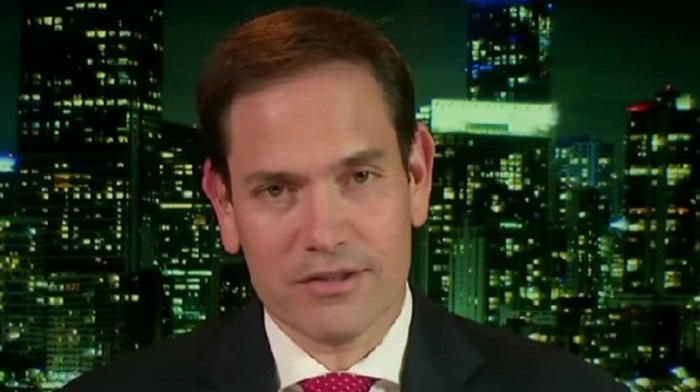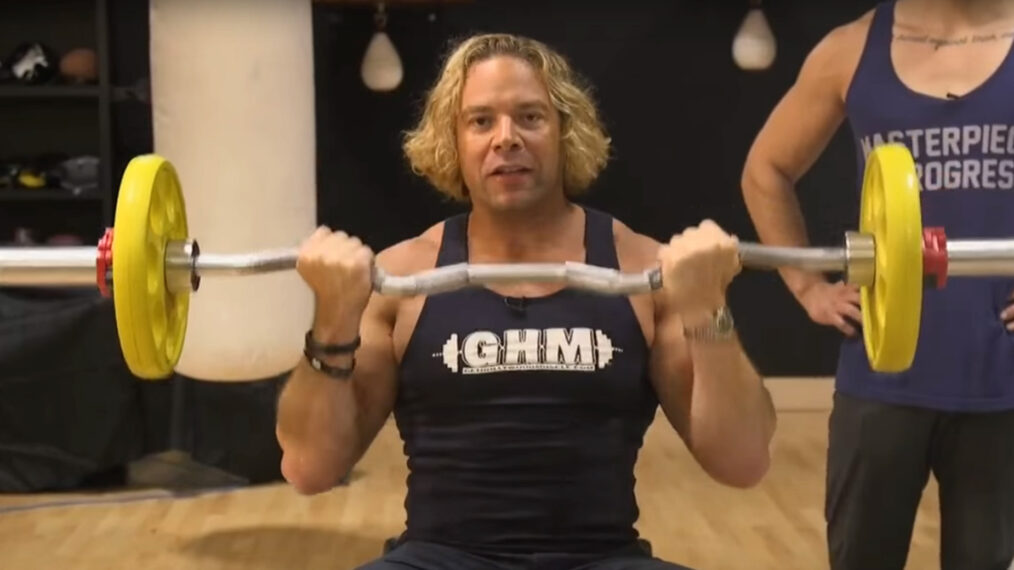
High inflation and bad consumer sentiment were supposed to result in Republican victory overall in Tuesday’s midterm elections, but Democrats ran way ahead of expectations and will hold the Senate and maybe even the House.
Part of the reason for Democrats’ success is that they did not cede economic issues to Republicans, and exit polls suggest they were able to convince Americans they understood voters’ economic pain in a way the GOP could not.
“The American people caught on that Republican economics is a disaster for working families, and will simply benefit the very richest people in society,” Sen. Bernie Sanders (I-Vt.) told HuffPost. In the run-up to the election, Sanders had warned the party was not doing enough to attack GOP plans for the economy.
“I’m glad that a number of Democrats, including the president, in the final weeks of the campaign, got to speak out on those issues, and expose the fact that Republicans want to give tax breaks to billionaires and then cut Social Security and Medicare,” Sanders said.
On net, it’s clear economic sentiment helped the GOP, but the advantage may not have been as dominant as preelection polls forecast. Voters worried about inflation more than any other single issue, but it wasn’t the top concern for the majority of people, with just 31% of voters rating it most important for their vote, followed by 27% of voters most motivated by abortion, according to exit polls. (Exit polls are flawed instruments, and the results will shift after they are matched to final results.)
And abortion rights may have motivated more voters than inflation did. Some 76% of voters most worried about abortion said they supported Democrats, compared with 71% of inflation worriers.
But Democrats actually aired more TV ads addressing “pocketbook issues” than Republicans did, according to an analysis of months of campaign ad trends by the Winning Jobs Narrative Project, a working group of progressive messaging organizations.
Republicans ran more ads on taxes and the overall economy, the analysis found, but far fewer on health care, prescription drugs and especially Social Security, a topic Democrats increasingly highlighted toward the end of the election cycle.
“It’s not easy being on a fixed income,” Rep. Ann Kuster (D-N.H.) said in one of her ads. “So it’s disturbing that Bob Burns pledged to join the most extreme members of Congress who want to cut the Social Security and Medicare we’ve earned.”
Democrats also did a better job identifying themselves as regular working people, according to the Winning Jobs Narrative Project’s analysis.
“I know how important work is. I was raised by a hardworking single mom,” Rep. Steven Horsford (D-Nev.) said in an ad. “And I’ll never forget where I came from.”
Democrats prevailed on empathy. In every Senate race, voters who said it mattered most that a candidate cared about people like them heavily favored the Democratic candidate, according to exit polls. Of the 17% of Nevada voters who said it matters most that a candidate “cares about people like me,” nearly two-thirds said they voted for Democratic Sen. Catherine Cortez Masto, while only 32% favored her Republican challenger, Adam Laxalt.
“That metric of whether someone believes that the candidate cares about people like them — which is however that person chooses to define that — is I think the better indicator for how people are going to vote and whether people are going to vote,” Melissa Morales, president of Somos Votantes, a progressive group that engages Latino voters, and lead researcher for WJNP, said in an interview.
Inflation was even more of a challenge for many Senate Democrats. Three of the party’s incumbents represent metro areas in the top 10 nationally for inflation: Sen. Mark Kelly (Ariz.) represents Phoenix, which had the country’s highest rate; Sen. Patty Murray (Wash.) represents Seattle, with the nation’s 4th highest rate; and Sen. Raphael Warnock (Ga.) represents Atlanta, which ranks 7th.
Democratic governors also had a stronger-than-expected election, with only a single Democratic incumbent losing: Steve Sisolak of Nevada. The coronavirus pandemic hit Nevada’s tourism-centric economy particularly hard.
The Democratic Governors Association encouraged the party’s incumbents and candidates to air ads last spring highlighting the work they had done on economic issues to fend off the near-certain attacks from the GOP in the fall.
Michigan Gov. Gretchen Whitmer (D), for instance, aired ads highlighting her work to fund semiconductor production in the state: “Bringing the supply chain home, creating Michigan jobs. The future is happening right here.” Maine Gov. Janet Mills (D) ran ads highlighting her balanced budgets without tax increases and ability to send $850 checks to most residents. “Fighting inflation instead of fighting each other,” a narrator says in the spot. “One more way Gov. Mills puts Maine first.”
Another mitigating factor for Republicans’ advantage on inflation is that inflation is not the only thing happening in the economy.
Most people do think the economy is bad. Three-quarters of voters rated economic conditions as “not so good” or “poor.” Two-thirds of voters who said the economy wasn’t so good still voted for Democrats.
If there’s other stuff to worry about, though, it’s not hard to see why inflation would fail to determine an election outcome. When people talk about “the economy,” they are often talking about specific things such as prices or jobs — but not necessarily their own economic situation.
The past year has seen the highest inflation in decades, but also the fastest wage growth in at least 20 years thanks to a super-tight labor market with unemployment near the historical lows of the 1950s. Wages haven’t risen faster than prices for consumer goods and services, but the worker bargaining power brought by such low unemployment has nonfinancial benefits, such as more opportunities to switch to a preferred job or a better schedule.
A slim majority of voters told exit pollsters they’re either doing better than last year or about the same. But normal people don’t necessarily attribute their own success to unseen forces of supply and demand. That would be weird.
“People are likely to see their increased opportunities in the labor market as a result of their individual achievement, as opposed to the macro state of the labor market,” said Dean Baker, an economist at the liberal Center for Economic and Policy Research.
And for the past year and a half, the strong labor market has frequently been described in news stories and by politicians as a bad thing, Baker noted, with employers complaining they can’t find workers.
Republicans have warned about inflation for years, even when there was none on the horizon, due to their nostalgia for the rise of Ronald Reagan in the 1970s, when high inflation helped make Democrat Jimmy Carter a one-term president. But Republicans might be forgetting that inflation back then accompanied unemployment rates persistently twice as high as today’s.
Another problem for Republicans is that they offered no plausible solution to inflation. They made stimulus checks a symbol of Democrats’ wasteful spending, but there are no plans to send another round of checks. The payments were enormously popular when they went out and likely contributed to household savings that are still higher than normal. Republican ads said the checks went to criminals.
“Most people say, ‘Wait a second, I’m not a criminal. I lost my job, I’m trying to feed my family. Thank you for getting me $1,400 for each man, woman and child in my family,’” Sanders said.
























































